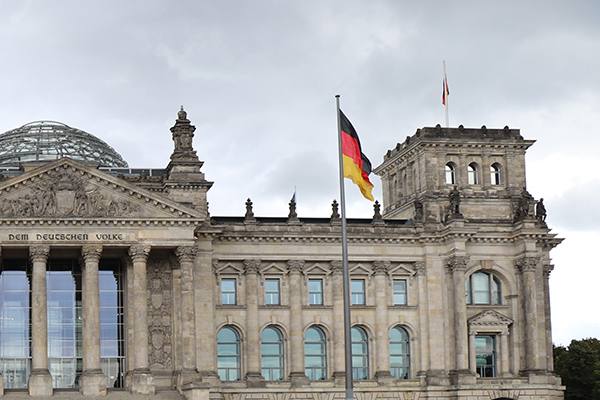Members of the German Bundestag have made it easier to obtain German citizenship. The bill to modernise citizenship law was passed on 19 January 2024 by 382 votes to 234 with 23 abstentions. The CDU/CSU and the AfD voted against the new law. The new law is expected to come into force in April.
The most important changes at a glance:
The period of residence in Germany required for naturalisation will be reduced from the current eight to five years. In the case of “special integration achievements”, naturalisation will be possible after just three years—for example in the case of excellent language skills (C 1 level), voluntary work or particularly good performance at school and at work. Children born in Germany can automatically receive German citizenship if one parent has been legally resident in Germany for at least five years.
Dual citizenship will be accepted in future: Those who naturalise in Germany will no longer have to give up their previous citizenship.
Securing one’s own livelihood will continue to be a prerequisite for naturalisation.
Previously, this was possible despite receiving social assistance if someone was not responsible for claiming the benefits. This is now no longer the case. There will only be exceptions for “guest workers”, full-time workers and spouses of full-time workers with underage children. Discretionary naturalisation will be possible for pensioners, people with disabilities, single parents and carers who are dependent on social welfare.
For people from the so-called “guest worker generation”, the otherwise required written language certificates at B1 level are to be waived. Instead, it should be sufficient if they can communicate verbally in German “without significant problems in everyday life”. This is intended to honour the lifetime achievements of this generation, who “made a significant contribution to the development of Germany” and for whom there were no language courses or integration offers at the time, as the Federal Ministry of the Interior explains.
In order to obtain a German passport, foreigners must—as before—declare their commitment to the free and democratic basic order enshrined in the German Basic Law. The law states that “anti-Semitic, racist, anti-gender or anti-sexual orientation or other inhuman acts” are incompatible with the Basic Law’s guarantee of human dignity. A further requirement for naturalisation is the “acknowledgement of Germany’s historical responsibility for the National Socialist reign of injustice and its consequences, in particular for the protection of Jewish life”. Both this commitment and the commitment to the free democratic basic order must be documented by an attitude; a signature alone is not sufficient. People who have committed anti-Semitic or racist offences should be excluded from naturalisation. To this end, closer cooperation between the naturalisation authorities and the public prosecutor’s offices is planned. In addition, anti-Semitic and racist offences below the threshold of criminal liability are to be excluded from naturalisation.
Naturalisation can also be revoked within ten years. This can occur, for example, in the event of fraudulent misrepresentation or incorrect information. With the reform, incorrect declarations of commitment to the free democratic basic order can also lead to revocation in future.
All documents on the modernisation of citizenship law at:
Deutscher Bundestag—Bundestag erleichtert Zugang zur deutschen Staatsangehörigkeit
tun24012406
Das Reichstagsgebäude in Berlin. Foto: tünews INTERNATIONAL / Mostafa Elyasian.
001910




